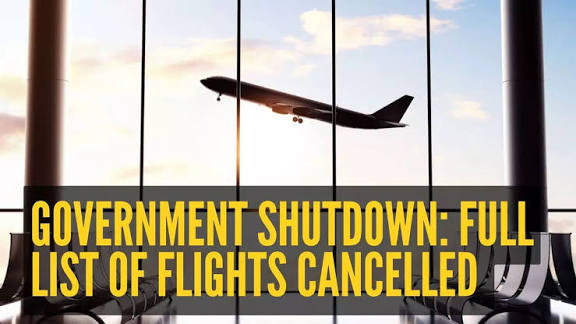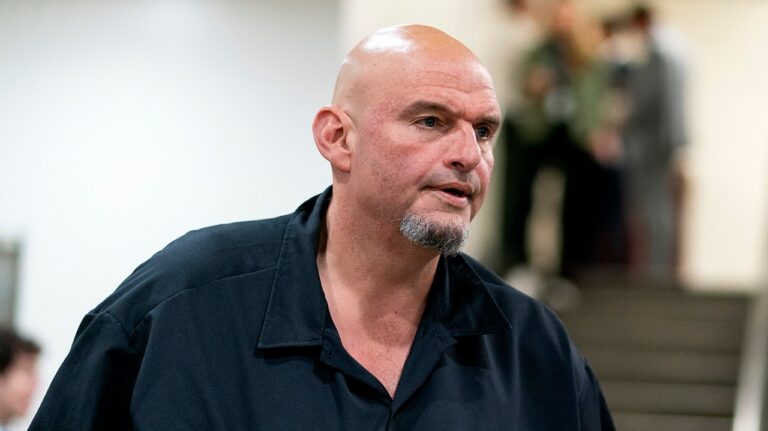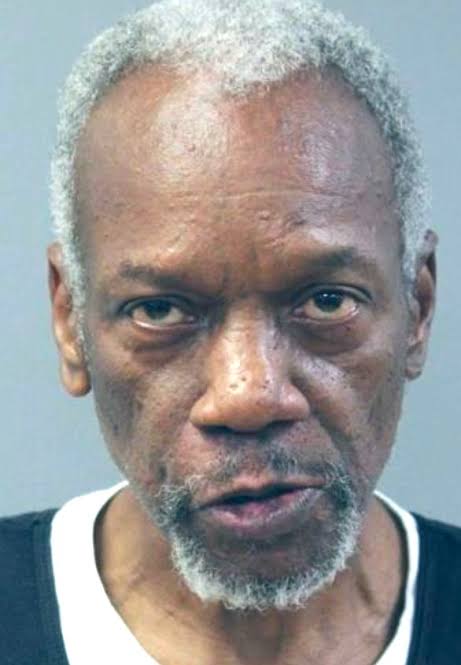Why Susan Monarez Refused to Resign: Inside the CDC Shake-Up
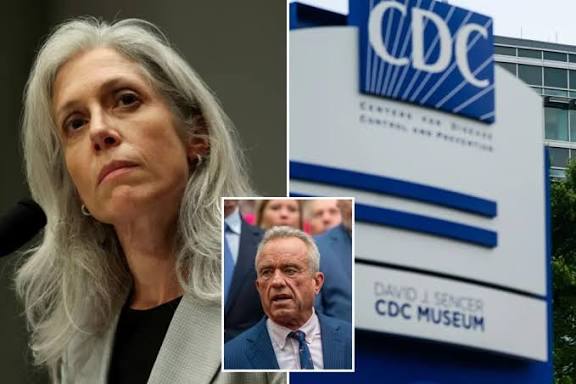
“Since my removal, many clarifications have been offered: I said that I will resign from the secretary. Today we will discuss about Why Susan Monarez Refused to Resign: Inside the CDC Shake-Up
Why Susan Monarez Refused to Resign: Inside the CDC Shake-Up
In late August 2025, the United States Centers for Disease Control and Prevention (CDC) was thrown into turmoil. Just under a month after being confirmed as CDC Director, Dr. Susan Monarez was forced out of her role under controversial circumstances. While the official narrative offered assorted reasons for her dismissal, Monarez and several of her allies assert that her refusal to comply with directives that she believed compromised scientific integrity was the real cause. This article delves into what led up to the shake-up, what motivations lay behind both sides, and what this means for the future of public health policy in the U.S.
Who Is Susan Monarez?
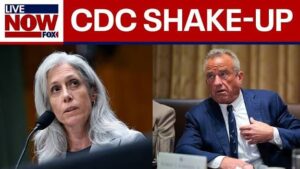
-
Background and Credentials
Susan Monarez holds a Ph.D., not an M.D., making her the first CDC director in decades (since 1953) without a medical degree. -
She had been acting director since January 2025 and was formally nominated by President Donald Trump in March and confirmed by the U.S. Senate on July 29, 2025, in a 51–47 party-line vote.
-
Mandate and Expectations
During her confirmation and in subsequent statements, Monarez was praised and expected to lead CDC under the new administration’s public health agenda, which included reforming agencies, restoring trust in public health institutions, and repositioning vaccine policy.
The Conflict: What Caused the Shake-Up
Multiple sources, including Monarez herself, media reporting, and statements from inside the Department of Health and Human Services (HHS) point to a series of conflicts with Health Secretary Robert F. Kennedy Jr. concerning vaccine policy, advisory committees, and demands that she approve directives and dismiss career officials.
Key Points of Tension
-
Pre-approval of Vaccine Recommendations
Monarez says Kennedy demanded that she pre-approve vaccine recommendations from the CDC’s Advisory Committee on Immunization Practices (ACIP) before reviewing the scientific evidence. She claims that many members of the new panel had expressed vaccine-skeptical views. -
Changing the Childhood Vaccine Schedule
According to Monarez, Kennedy instructed her that the childhood vaccine schedule would change starting September, and she needed to be “on board with it,” despite there being no supportive data or science she could see. -
Firing Career Officials
Monarez allegedly was asked to dismiss senior, career officials in vaccine policy but refused because there was no justification based on performance or science. These individuals had long experience and institutional knowledge. -
Integrity and Ethical Standards
Monarez insists these demands from Secretary Kennedy conflicted with her duties to uphold scientific integrity and evidence-based policy. She claimed that doing otherwise would violate her oath and ethics as a public health leader.
What the Other Side (Kennedy & HHS) Says
-
Kennedy has disputed some claims, especially that he demanded blind compliance or that Monarez admitted to being untrustworthy. He acknowledges ordering firings of staff but frames those as necessary changes.
-
The HHS/White House claimed Monarez was “not aligned” with the president’s agenda, implying differences in policy direction.
Monarez’s Refusal: Why She Stood Her Ground
Given the demands, Monarez is reported to have refused, for multiple reasons:
-
Scientific Integrity: Monarez believed that she could not commit to approving recommendations or altering vaccine guidance without rigorous evidence. To her, the requests violated basic standards of public health practice.
-
Ethical Principles: Firing career scientists without cause or compelling reasons, or rubber-stamping directives, would betray professional and ethical norms. She saw it as an erosion of the role of scientific leadership.
-
Legal and Structural Concerns: Because Monarez was a Senate-confirmed director, some of the legal framework (e.g. who has authority to fire her) was contested. Her legal team argued that only the President could properly terminate a Senate-confirmed official, raising questions about the legitimacy of the actions by subordinates.
The Timeline: How Things Escalated
Putting together reporting and Monarez’s own testimony, here’s the rough timeline of events:
-
July 29, 2025 – Monarez is confirmed by the Senate as CDC Director after serving in acting capacity.
-
Early August – Internal clashes reportedly begin over vaccine policy, advisory committee composition, and messaging.
-
Aug 25, 2025 – Monarez is given an ultimatum: either resign or agree to directives including pre-approving vaccine recommendations and firing senior vaccine policy officials. She refuses.
-
Aug 27, 2025 – HHS announces Monarez is “no longer director.” White House claims she was fired because she refused to resign; Monarez’s attorneys challenge legality. Several senior CDC officials resign in protest.
Legal, Institutional, and Political Stakes
This was not just a personal conflict—it touches on deeper issues in the relations between politics, science, and institutions.
Legal Questions
-
Who Has Authority to Remove a Senate-Confirmed Director: Monarez’s attorneys claimed her removal was invalid since only the President can fire a Senate-confirmed official. There is precedent and legal framework around this, but the exact application is contested.
-
Legitimacy of Demands: Ordering preapproval of scientific recommendations, altering policy without evidence, or dismissing experts without cause raises questions about abuse of authority and protections for career scientists.
Institutional Integrity
-
Science vs. Politics: Officials who resigned in the wake of Monarez’s removal said they could no longer work in an environment where vaccine guidance and public health policy were being directed for political purposes.
-
Expert Advisory Panels: Replacing members of advisory committees with individuals who hold vaccine-skeptical or anti-vaccine views, particularly without transparent evidence, risks undermining trust, continuity, and the ability to respond to health threats.
Political Implications
-
Public Health Messaging & Trust: When public health agencies are perceived as politicized, it can erode public confidence in vaccine guidance or even basic health recommendations. That trend is dangerous during disease outbreaks.
-
Policy Direction Under New Administration: The shake-up reflects a broader shift under Secretary Kennedy’s leadership of the Department of Health and Human Services. Vaccine policy, advisory committee composition, and public health priorities appear to be in flux, potentially moving away from prior norms.
Aftermath: What Followed Monarez’s Refusal
-
Mass Resignations at CDC: Several senior officials followed Monarez out, including Debra Houry (Chief Medical Officer), Demetre Daskalakis (Director of Immunization and Respiratory Diseases), and other vaccine / emerging disease experts. They cited concerns about politicization and the undermining of scientific norms.
-
Acting Replacement: Jim O’Neill, previously a deputy in HHS, was appointed Acting Director of the CDC after Monarez’s removal.
-
Senate Oversight & Testimony: Monarez testified before the Senate HELP Committee (Health, Education, Labor & Pensions) about the “true reason” for her firing: refusing to compromise on scientific evidence and integrity.
-
Public & Expert Reaction: There was widespread concern among public health experts, non-governmental organizations, and professional associations. Criticism centered on the threats to credibility, transparency, and the risk of policy decisions being made without rigorous scientific backing.
Why Resignation Was Not an Option (For Monarez)
Putting all the pieces together, the factors for Monarez refusing to resign appear to include:
-
Preserving Her Credibility & Legacy: Monarez seems to have felt that resigning under pressure would signal complicity or allow unscientific mandates to be carried forward without challenge. By refusing, she visibly drew a line.
-
Moral & Ethical Imperative: The demands placed on her (blindly approving vaccine schedules, dismissing staff without evidence) conflicted with her scientific and ethical obligations. For her, these were non-negotiables.
-
Legal Standing: Given her status as a Senate-confirmed director, Monarez and her legal team believed she had due process and protections; she contended the firing or removal had to align with law, including who has authority. Resigning might have compromised any legal recourse or public exposure of what she considered wrongful demands.
-
Accountability & Public Interest: Monarez’s public testimony suggests she believed the public had a right to know what was asked of her, and that hiding those demands would be detrimental to public health trust. Her refusal hence also served a broader accountability purpose.
Risks and Consequences
Monarez’s decision came with real risks, and, indeed, the broader shake-up has several possible consequences:
-
Institutional Disruption: Sudden leadership changes, especially at senior levels, threaten institutional memory, continuity, and morale within the CDC. Public health responses depend on stable operations.
-
Public Trust Undermined or Questioned: If people believe vaccine recommendations are being politicized or decoupled from science, uptake may decline, misinformation may increase, threatening disease control efforts.
-
Vaccine Policy Shifts: Changes to the advisory committee, pre-approval demands, and schedule alterations could lead to policies that differ significantly from previously evidence-based norms.
-
Legal Precedents: How this case is handled might influence future governance of science agencies, the legal protection for public health officials, and expectations of political interference.
Broader Context: Why This Matters Now
The Monarez episode is not an isolated incident; it reflects a larger tension in U.S. public health and governance: balancing political oversight with scientific autonomy.
-
During the COVID-19 pandemic, many tensions over vaccine mandates, messaging, and public health guidance highlighted the delicate balance between politics and science.
-
Part of the Trump administration’s platform, and of Secretary Kennedy’s statements, involves reshaping how federal health agencies function, especially around vaccine policy, federal health guidance, and public perception.
-
Growing vaccine skepticism and misinformation amplify the stakes: decisions made by CDC leadership resonate beyond offices into communities, media, and individual decisions.
What’s At Stake Going Forward
Here are the key issues and questions that Monarez’s refusal has raised, and which will likely shape the coming months:
-
Transparency of Vaccine Recommendations
Will future vaccine guidance be based transparently on rigorous data? Or will political or ideological considerations take precedence? -
Authority and Governance
How much authority should the Secretary of HHS have over the CDC director, advisory panels, and vaccine policy? Will there be checks and safeguards to prevent misuse? -
Protecting Career Scientists and Experts
Will career scientists be allowed to dissent or speak publicly about data? Will support exist for those who feel pressured to comply with directives they do not believe in? -
Public Health Policy & Preparedness
Diseases like measles, COVID, and others require consistent, predictable immunization policies. Disruption, especially if policies change without transparent evidence, could weaken disease prevention efforts. -
Trust Between Public & Institutions
Rebuilding or maintaining trust is fragile. Incidents perceived as politicized may have long-term damage that is hard to reverse.
Alternative Perspectives & Criticisms
While Monarez has strong backing among many scientists and former CDC officials, there are alternative viewpoints or criticisms to consider:
-
Policy Priorities vs Scientific Caution: Some argue that shifts in vaccine policy may reflect evolving understanding, resource constraints, or new risk assessments. From this angle, some degree of policy change (even controversial) might be defended.
-
Political Accountability: As with all public agencies, elected officials (like the Secretary) may argue they have mandates from the electorate and oversight responsibilities. They may see some of Monarez’s resistance as impeding swift policy changes or reforms.
-
Ambiguity in Evidence Base: Vaccination schedules and other public health guidance often involve balancing imperfect evidence, risk, and benefit. What constitutes “sufficient evidence” is sometimes debated.
-
Communication and Trust: Critics may say that strong public defiance or courtroom-style narratives risk politicizing the institution even more, making cooperation between officials harder.
Conclusion
Susan Monarez’s refusal to resign under pressure from Robert F. Kennedy Jr. and the subsequent ousting of her position highlight a crisis at the intersection of science, ethics, and politics in U.S. public health policy. Monarez framed her resistance around upholding scientific integrity, refusing to rubber-stamp vaccine policy changes without proper evidence, and resisting demands to dismiss career scientists without cause.
Her case is more than a personnel conflict—it taps into bigger concerns: who makes the decisions in public health, how scientific advice is shaped or overridden, and how trust is maintained in institutions that are vital for public safety. As public health threats continue—pandemics, vaccine hesitancy, emerging diseases—the structures that support evidence-based, transparent, trustworthy decision-making will be tested.
What happens next—how oversight proceeds, how future vaccine policy is decided, and how public and scientific communities respond—may set precedents that go far beyond this episode.
How useful was this post?
Click on a star to rate it!
Average rating 0 / 5. Vote count: 0
No votes so far! Be the first to rate this post.
About the Author
usa5911.com
Administrator
Hi, I’m Gurdeep Singh, a professional content writer from India with over 3 years of experience in the field. I specialize in covering U.S. politics, delivering timely and engaging content tailored specifically for an American audience. Along with my dedicated team, we track and report on all the latest political trends, news, and in-depth analysis shaping the United States today. Our goal is to provide clear, factual, and compelling content that keeps readers informed and engaged with the ever-changing political landscape.
